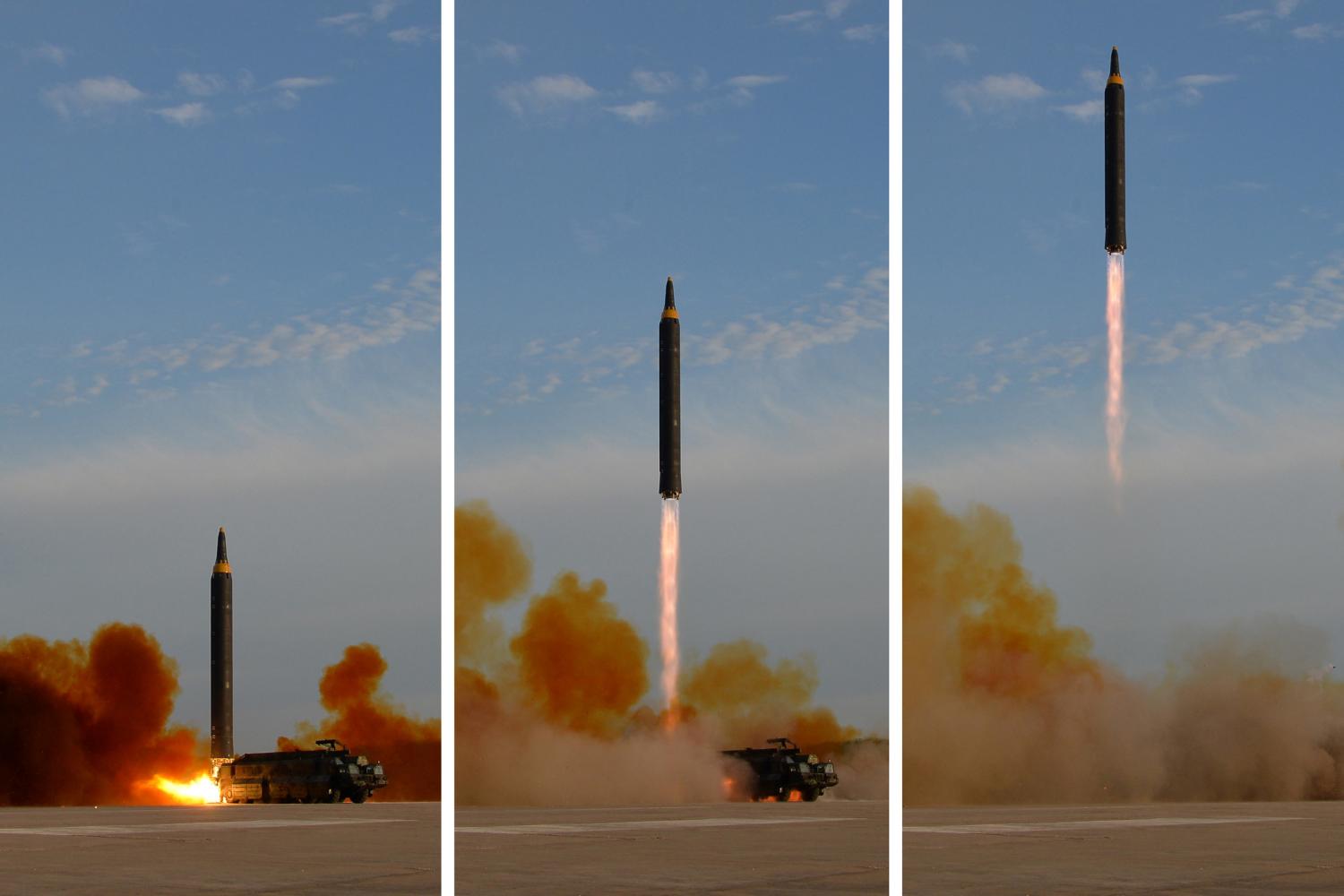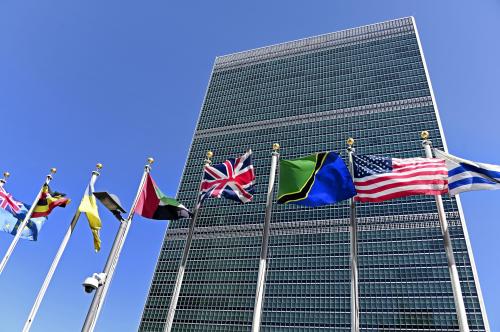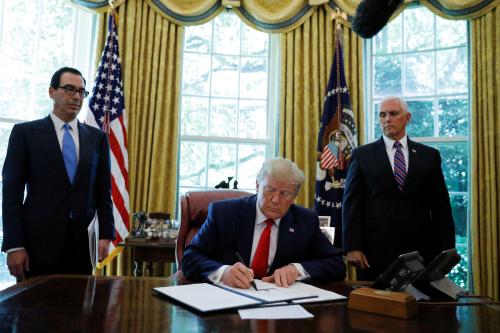The following is a summary of the third session of the Congressional Study Group on Foreign Relations and National Security, a program for congressional staff focused on critically engaging the legal and policy factors that define the role that Congress plays in various aspects of U.S. foreign relations and national security policy.
On May 7, 2020, the Congressional Study Group on Foreign Relations and National Security convened online to discuss the question of the command and control of U.S. nuclear weapons. At present, the president has the unilateral authority to choose to use nuclear weapons, and many assume that this is a result of his Article II powers under the Constitution. But is this assumption correct? Are there ways Congress can limit when and how the president uses nuclear weapons?
To discuss this topic, the working group was joined by three outside experts Professor Mary DeRosa of Georgetown University Law Center, a former legal advisor to the National Security Council; Chris Fonzone, a partner at Sidley Austin and another former legal advisor to the National Security Council; and Professor Matt Waxman of Columbia Law School, who is also an Adjunct Senior Fellow at the Council on Foreign Relations and has previously held senior positions in the National Security Council and U.S. Department of State. Prior to the session, the study group received several written pieces as background reading, including:
- “The President and Nuclear Weapons: Authorities, Limits, and Process,” a report for the Nuclear Threat Initiative that DeRosa co-authored (and was accompanied by a separate policy proposal by former Energy Secretary Ernest Moniz and former Senator Sam Nunn);
- “The President and the Bomb: Reforming the Nuclear Launch Process,” which Waxman co-authored for Foreign Affairs; and
- “What the Military Law of Obedience Does (and Doesn’t) Do,” an issue brief for the American Constitution Society authored by Fonzone.
In addition, the study group coordinator Scott R. Anderson also circulated a handout (download here) on relevant legal authorities for the attendees to reference.
DeRosa began the conversation with a discussion of the constitutional authorities behind the use of nuclear weapons. While there is some debate about the exact line between congressional and presidential authority, she noted that most scholars agree that Congress could choose to exclude or limit the availability of nuclear weapons and perhaps even set some limits on how nuclear weapons are used. Moreover, congressional authorization is arguably constitutionally required for uses of nuclear weapons that are not in self-defense, particularly where outside the context of an existing armed conflict. Nuclear weapons–and particularly the first use of them–also implicate the United States’s international legal obligations, as their use necessarily raises questions about compliance with principles of distinction and proportionality. That said, while there are strong arguments in support of the conclusion that Congress can set some limits on the use of nuclear weapons–including first use–these limitations are more likely to face constitutional issues the more they try to micromanage the president’s strategic and tactical decisions regarding the use of the armed forces.
Waxman then shifted focus to ways that Congress might be able to shape the executive branch process for deciding when and how nuclear weapons are used. While few are likely to argue with the president’s ability to use nuclear force in response to a nuclear attack, Waxman identified three problematic scenarios that might emerge in a case of nuclear first use: that the president would pursue such an action without due deliberation; that a president might give such an order, but that it is not obeyed by military personnel who believe it to be unlawful or unwise; and that a third party might try to interfere with the system to inhibit a response or trigger an unauthorized launch. A better defined process–for example, one that requires that an order to use nuclear weapons be certified as valid by the Secretary of Defense and lawful by the Attorney General–could reduce all three of these risks by putting some limits on the president’s unilateral authority, encouraging a more deliberative and justified process that is less likely to trigger reservations, and creating a process with multiple safeguards less subject to external manipulation. Such a process could be implemented by the president by executive order or by Congress, though the latter may raise constitutional objections in some corners and runs the risk of being disregarded by administrations who maintain it is constitutional. That said, by leaving the decision-making within the executive branch, such approaches are less likely to incur constitutional objections than outright statutory prohibitions, which may make them more effective in the long run.
Finally, Fonzone stepped in to discuss the military chain of command, specifically in reference to the oft-discussed possibility that military personnel might disregard an impetuous order to use nuclear weapons as unlawful. The operational chain of command, he noted, runs from the President through the Secretary of Defense down to the military ranks, and is defined in substantial part by statute in addition to executive branch guidelines. While the Secretary of Defense might be removed from office for disobeying a presidential order, members of the military can face criminal sanctions under the Uniform Code of Military Justice. That said, this duty of obedience does not extend to “patently” or “manifestly” illegal orders, which military personnel are obligated not to follow. This bar, however, is extremely high and requires clear knowledge on the part of the servicemember. As many major policy decisions, including the use of nuclear weapons, occur on contested and complex constitutional and legal terrain, even unlawful orders are not likely to be seen as “patently” or “manifestly” illegal. Hence, one should not rely on the lawfulness exceptions to the chain of command alone as a meaningful safeguard against such conduct.
From there, the study group went into open discussion, where they raised issues and addressed questions relating to: the civilian control of nuclear technology and weapons development; international legal and policy restraints on the use of nuclear weapons; and in what circumstances the use of nuclear weapons should properly be left to the president’s unilateral authority (e.g., self-defense).
Visit the Congressional Study Group on Foreign Relations and National Security landing page to access notes and information on other sessions.



